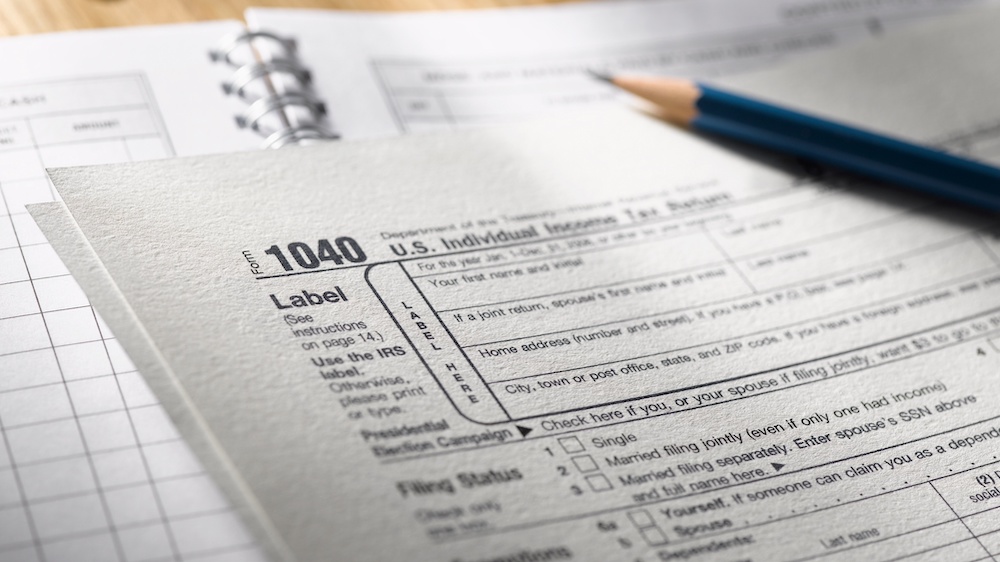If you’re interested in sharing your opinion on any cultural, political or personal topic, create an account here and check out our how-to post to learn more.
Opinions are the writer’s own and not those of Blavity's.
____
Juneteenth is officially a national holiday, and conversations about what reparations could look like for Black Americans are in full swing. California has its reparations task force, and Rep. Sheila Jackson Lee (D-TX-18) introduced H.R.40 — the Commission to Study and Develop Reparation Proposals for African Americans Act. People much more enlightened on the topic than I have researched ideas for reparations for a long time, and a plethora of information and proposals are already available. That said, as a descendent of people who were enslaved, I have a proposal: $0 taxes.
The idea is by no means revolutionary. ProPublica recently published the tax records of some of this country’s wealthiest individuals, revealing that some, through various legal methods, also paid exactly $0 in federal taxes in some years. Many of their fortunes were created using America’s robust infrastructure and economy, all of which, at their foundation, were made possible by slavery.
My ancestors were enslaved, so I won’t pretend like I don’t have skin in this game. But my interest in this also lies in the fact that I, like most Americans whose income is slashed every year by taxes, am annoyed that America’s richest can evade taxes all while using significantly more resources and creating infinitely more pollution than I ever will.
My ancestors came here against their will and were forced to create the largest economy the world has ever seen. The facts are readily available: one can simply look to the example of rice — a crop that struggled in the U.S. before West Africans, who knew it well, were forced here and made South Carolina the world’s largest exporter of rice in that period.
In light of all of their unpaid economic contributions, and since no 40 acres and a mule or modern-day equivalent was ever granted for their labor, my ancestors’ descendants certainly should not pay for this government to function. Especially not when it continues to imprison Black people (another form of enslavement) at disproportionately high rates.
The United States forced Black people to build the country for free, fight its wars, subjected us to Jim Crow, segregation, discrimination, voter suppression, incarceration and abuse, then turns around and makes us pay for all of it with taxes. And more taxes as a proportion of our income at that. It doesn't make sense.
Additionally, any no-tax proposal should certainly extend to Indigenous people in this country. No one should pay a government that systematically exterminated and displaced them. Not now, not ever.
Since Black and Native Americans combined make up less than 15% of the U.S. population, the country can afford to foot the bill for our taxes. Even if it couldn’t, it’s a debt owed, but it does help that it will not break the bank. Not to mention, taxing the extraordinarily wealthy in earnest would make up for it ten-fold.
I’m sure plenty of people will read this essay and dismiss it as oversimplified and trite. That’s how I felt when I saw the $0 number listed for Jeff Bezos’ 2007 and 2011 tax bills. How simple. How blissful.
I am not by any means saying this is the full answer to reparations, I am simply pointing out the absurdity in these very rich white men paying that amount in taxes, as we debate what reparations might look like in 2021. A no-tax rule — for state tax, federal tax, sales tax, property tax and more, would only be one piece to a much larger puzzle.
I am no economist or tax expert, so I’ll leave the logistics of how it could be done up to the professionals — perhaps those employed by Bezos, Warren Buffet or Bill Gates. What I do know is that it seems like a first step that could theoretically be undertaken in the two years it takes California’s reparations task force to come up with proposals. Perhaps the state should look to the country’s richest residents for clues on where to start.
____
Courtney McKinney is a communications professional working on anti-poverty issues. She is based in Sacramento.
